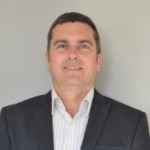PROLOG Business Conference 2017
February 17th in Tallinn, Nordic Hotel Forum, Viru väljak 3
The central theme running through the PROLOG Business Conference is untapped opportunities in the supply chain management, processes and cooperation.
International and local professionals will share their experience and provide examples of opportunities hidden in supply chains. The speakers’ lineup includes current and former executives of multinational corporations as well as senior managers of large Estonian companies.
STATEMENT OF THE PROGRAM MANAGER
We are inviting you to the PROLOG Business Conferences where we will be presenting world trends, offer best practices and provide opportunities for networking. Estonian Purchasing and Supply Chain Management Association PROLOG is starting a new tradition by organizing its first PROLOG Business Conference.
Why are we doing this?
The Business Conference supports the main mission of PROLOG: to increase the competitiveness of Estonian enterprises and, through that, the whole Estonian economy through sharing of professional knowhow and best practices in purchasing and supply chain management.
Why Business Conference?
The vision of the PROLOG Business Conference is to be a forum that brings together top corporate executives and senior professionals in supply chain, purchasing and logistics management.
It’s an event where purchasing and supply chain experts can present their ideas and values to business executives. In addition, it is also a place where a business executive can be proud of the achievements of his or her purchasing or supply chain manager. I am confident that we must raise the potential of purchasing supply chain management and awareness also in the future which is why we try to open up opportunities in supply chains sharing of experience by local and international speakers.
Our speakers include current and former executives of multinationals, as well as top professionals of large Estonian enterprises.
I hope to see you all in the PROLOG Business Conference so that we can share together the best practices in purchasing and supply chain management.
Peep Tomingas
Managing director of the Estonian Purchasing and Supply Chain Management Association PROLOG
Program manager of PROLOG Business Conference
CORPORATIONS
• Creator of Hyperloop, the world’s fastest transportation solution
• World’s leading developer of blockchain and artificial intelligence technology IBM
• Estonia’s largest exporter Ericsson
• Baltika – the pride and love of the Estonian garment industry
• XONITEK Group
• State Shared Service Centre
• Information on other conference speakers and topics is provided below
All presentations will have simultaneous translation into English and Estonian
TARGET GROUP
Top executives from industrial, logistics and trade enterprises – owners, board members and chief executive officers. In addition to business executives, the conference is targeted at decision-makers in enterprises who are responsible for the supply chain, purchasing, procurement and logistics.
PARTICIPATION FEE
• Participation fee is € 269 +VAT per participant
Overnight in Nordic Hotel Forum
• Standard room 80 EUR / night
• Standard double room 87 EUR / night
MORE INFORMATION AND QUESTIONS
Martin Kivimäe / +372 56667056 / martin.kivimae@prolog.ee
PROGRAMME
08:45 Registration and morning coffee
09:20 Conference opening. Chairman of PROLOG Tõnis Hintsov and CEO of PROLOG Peep Tomingas
FUTURE TECHNOLOGIES
09:30 How Hyperloop changes transport of goods and people? Dr. Alan James James ,Vice President of Hyperloop One
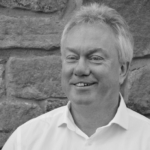 Hyperloop is a new technology that allows to transport people and cargo at the speed of air transport, but at the price of a bus fare. Hyperloop One wants to launch the world’s first commercial Hyperloop transport system. The company is progressing rapidly towards its goal: the engine of the Hyperloop pod was tested already in May 2016 and the whole Hyperloop system will be tested in a Nevada desert in early 2017. The goal is make sure that cargo can be transported in a Hyperloop system in 2020 and passengers in 2021. Also the first contract for developing a Hyperloop transport connection has already been signed. It will be built in the United Arab Emirates between Dubai and Abu Dhabi and cover the 159-kilometre distance in 12 minutes.
Hyperloop is a new technology that allows to transport people and cargo at the speed of air transport, but at the price of a bus fare. Hyperloop One wants to launch the world’s first commercial Hyperloop transport system. The company is progressing rapidly towards its goal: the engine of the Hyperloop pod was tested already in May 2016 and the whole Hyperloop system will be tested in a Nevada desert in early 2017. The goal is make sure that cargo can be transported in a Hyperloop system in 2020 and passengers in 2021. Also the first contract for developing a Hyperloop transport connection has already been signed. It will be built in the United Arab Emirates between Dubai and Abu Dhabi and cover the 159-kilometre distance in 12 minutes.
But there are Hyperloop developments in progress also closer to Estonia. For instance, funding is being sought for building a Hyperloop connection between Helsinki and Stockholm. Today the it takes an hour by plane to travel from one city to another (in addition to the waiting time at the airport). Hyperloop would reduce the travel time to 28 minutes.
The world is finally getting a new means of transport. Dr. Alan James, Vice President of One Hyperloop will present at the conference on how Hyperloop will transform the transport of goods and people, and where this revolutionary transportation solution is being developed globally and in our region.
10:10 Blockchain – a new technology for supply chain management. Jaime Marijuán Castro, executive senior consultant of IBM Global Business Services
Blockchain is a technology that through automated data exchange processes helps to save considerable time and reduce costs. Its security is on an entirely new level which makes it impossible to secretly manipulate data. This means that Blockchain is introducing transparency in the supply chain. Jaime Castro from IBM will talk on how Blockchain is changing the quality of supply chain management. IBM is the world’s leading developer of Blockchain and artificial intelligence technology.
10:50 Trends in commodity prices: how to manage risks. Søren Vammen, CEO of Kairos Commodities and Danish Supply Chain Management Association
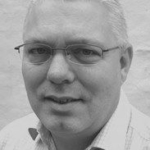 Commodity markets are very volatile and affect practically all companies. Yet, many enterprises do not have a strategy on how to manage this significant risk. They have simply taken the role of a victim and are blaming the situation on commodity markets for their poor economic results. The easiest insurance against the volatility of commodity prices is to agree with the customer that a change in commodity prices will also change the price of production, ie. to index product sales prices to commodity prices. However, if the client refuses indexation, other solutions must be found to manage the risks. One option is to fix purchasing prices for the future. Sören Vammen talks about how to analyze commodity markets, what weak management of commodity market risks can do and what are the options consequences of managing risks – how to insure against unfavourable trends in raw materials.
Commodity markets are very volatile and affect practically all companies. Yet, many enterprises do not have a strategy on how to manage this significant risk. They have simply taken the role of a victim and are blaming the situation on commodity markets for their poor economic results. The easiest insurance against the volatility of commodity prices is to agree with the customer that a change in commodity prices will also change the price of production, ie. to index product sales prices to commodity prices. However, if the client refuses indexation, other solutions must be found to manage the risks. One option is to fix purchasing prices for the future. Sören Vammen talks about how to analyze commodity markets, what weak management of commodity market risks can do and what are the options consequences of managing risks – how to insure against unfavourable trends in raw materials.
11:30 Coffee break
WORLD’S BEST PRACTICES
12:00 Speaker to be confirmed
12:45 How to develop the principle of continuous improvement? Joseph Paris, chairman of XONITEK Group
 The Toyota Production System and lean management theory was developed in the years 1945-1990, i.e. 25-70 years ago. Also the Six Sigma theory is about 30-40 years old. Although these theories were revolutionary in their day, the experiences of the last 20 years tells us that they are no longer fit for a 21st century organization. Also the principles of continuous improvement must be changed to ensure that they remain effective and relevant. Joseph Paris will talk about how to modernize lean management theories to avoid failure of efficiency programs and ensure that they can reach their full potential.
The Toyota Production System and lean management theory was developed in the years 1945-1990, i.e. 25-70 years ago. Also the Six Sigma theory is about 30-40 years old. Although these theories were revolutionary in their day, the experiences of the last 20 years tells us that they are no longer fit for a 21st century organization. Also the principles of continuous improvement must be changed to ensure that they remain effective and relevant. Joseph Paris will talk about how to modernize lean management theories to avoid failure of efficiency programs and ensure that they can reach their full potential.
Interested more about the topic? Attend 15.02 in Joseph Paris workshop “A State of Readiness“.
13:45 Lunch
SHARING EXPERIENCE: NEW THINKING, NEW PROCESSES
14:45 Trend-based decisions. Tarmo Leppoja, head of the State Shared Service Centre (RTK)
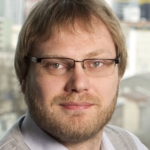 The function of the State Shared Service Centre (RTK) is to provide financial and personnel accounting services to state organizations. New technology will soon make the jobs of bookkeepers and personnel accountants obsolete. Tõnis Leppoja, head of RTK, will share his experience on how his organization is taking into account future vision in planning its activities today. Leppoja’s presentation also highlights the role of customer cooperation. In its service development, RTK and the customer jointly analyze activities that precede and follow the service. This is also a good way in developing supply chains to look together with the customer activities that take place before and after the service.
The function of the State Shared Service Centre (RTK) is to provide financial and personnel accounting services to state organizations. New technology will soon make the jobs of bookkeepers and personnel accountants obsolete. Tõnis Leppoja, head of RTK, will share his experience on how his organization is taking into account future vision in planning its activities today. Leppoja’s presentation also highlights the role of customer cooperation. In its service development, RTK and the customer jointly analyze activities that precede and follow the service. This is also a good way in developing supply chains to look together with the customer activities that take place before and after the service.
15:15 How to adjust supply chain management to new business models. Ingrid Kormik, purchasing and supply chain manager of Baltika
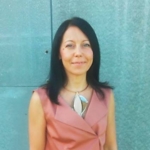 With five international fashion brands – Monton, Mosaic, Baltman, Bastion, and Ivo Nikkolo, Baltika Grupp is the largest fashion brand house in the Baltic countries. In addition to Estonian designs created by the Baltika teams, the company also plans and manages purchasing, production and logistics of fashion collections, including wholesale and retail trade. Baltika operates through different business models in most countries in Europe and has tested different business models in different markets, adapting them to specific markets and the general economic situation. Baltika’s purchasing and supply chain manager Ingrid Kormik will explain what are the challenges in using different business models on supply chain management.
With five international fashion brands – Monton, Mosaic, Baltman, Bastion, and Ivo Nikkolo, Baltika Grupp is the largest fashion brand house in the Baltic countries. In addition to Estonian designs created by the Baltika teams, the company also plans and manages purchasing, production and logistics of fashion collections, including wholesale and retail trade. Baltika operates through different business models in most countries in Europe and has tested different business models in different markets, adapting them to specific markets and the general economic situation. Baltika’s purchasing and supply chain manager Ingrid Kormik will explain what are the challenges in using different business models on supply chain management.
15:45 Development in addition to manufacturing – the new direction for Ericsson’s Tallinn plant. Lars Ottoson, manager of the Ericsson Tallinn plant
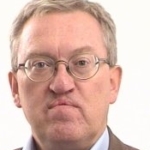 The Ericsson plant in Tallinn accounts for a tenth of the Estonian exports. However, this plant not only manufactures, assembles and supplies equipment. There has been a significant change – it has added development to its functions. It is now creating and developing new products for the whole group. The Ericsson plant in Tallinn is no longer only a manufacturing plant, but is increasingly also a design and development facility with both hardware and software development. In other words, the plant is now a place where ideas developed in Swedish and Canadian design are being tested and turned into finished products. In addition, the plant’s employees are developing the whole manufacturing and supply chain. Lars Ottoson who took over as the manager of the Tallinn plant in October, talks about what the Ericsson factory in Tallinn is doing today
The Ericsson plant in Tallinn accounts for a tenth of the Estonian exports. However, this plant not only manufactures, assembles and supplies equipment. There has been a significant change – it has added development to its functions. It is now creating and developing new products for the whole group. The Ericsson plant in Tallinn is no longer only a manufacturing plant, but is increasingly also a design and development facility with both hardware and software development. In other words, the plant is now a place where ideas developed in Swedish and Canadian design are being tested and turned into finished products. In addition, the plant’s employees are developing the whole manufacturing and supply chain. Lars Ottoson who took over as the manager of the Tallinn plant in October, talks about what the Ericsson factory in Tallinn is doing today
16:15 Day’s summary
16:45 PROLOG reception. Festive reception with wines and refreshments hosted by PROLOG.
PARTICIPATION FEE
• Participation fee is € 269 +VAT per participant
Overnight in Nordic Hotel Forum
• Standard room 80 EUR / night
• Standard double room 87 EUR / night
MORE INFORMATION AND QUESTIONS
Martin Kivimäe / +372 56667056 / martin.kivimae@prolog.ee



